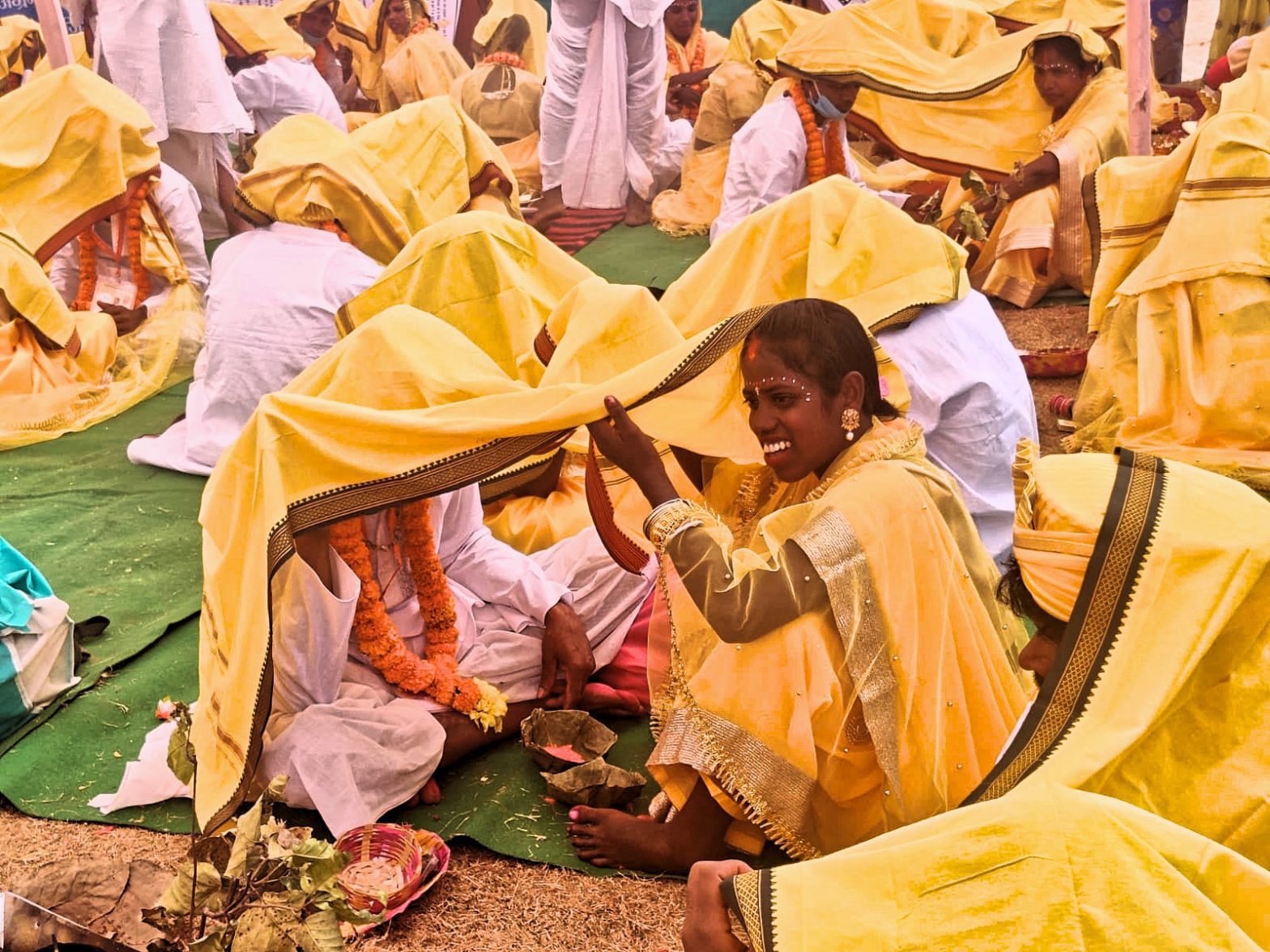
Mass marriage party in Jharkhand
Tribal communities hold mass marriage celebrations not just for the big party, but to legitimise long-standing relationships, ensuring women and children have legal recognition.

Tribal communities hold mass marriage celebrations not just for the big party, but to legitimise long-standing relationships, ensuring women and children have legal recognition.
With wedding season around the corner in India, couples up and down the country are preparing to tie the knot. But for many tribal communities, marriage between couples is not a concept or custom they follow.
Although the Supreme Court of India recognises live-in relationships, the rights of women and children over inheritance, family wealth and father’s name, are seen as challenges for unmarried couples.
That’s where the tradition of samuhik vivaah, or mass marriage, comes in to play.

On a warm day in February earlier this year around 100 tribal couples tied the knot in Khunti, Jharkhand. The ceremony took place in a stadium, with hundreds of giggling men and women dressed in bright yellow and priests chanting wedding vows to the crowds.
Couples from as young as 20 and as old as 60 took part in the ceremony. Many had their children witnessing the rituals, some merrily running in circles around them. The weddings were performed in line with tribal customs in their local language with the sounds of drums and flutes filling the air.

The celebration was such a huge hit that another samuhik vivaah is being planned right now – but this time around 4,000 couples will get married.
In addition to being a happy, big party, the mass marriage is also a step towards inclusion for tribal couples who have already maintained live-in relationships. The state marriage aims to give them social and legal recognition. The couples are also issued identity cards, enrolled under numerous social welfare schemes and are made aware of their rights and entitlements.

To include these tribal couples under the ambit of social welfare schemes and help them with the costs of a wedding, the ceremony was fully funded and arranged by the district administration of Khunti, and Nimitta, an NGO based in Ranchi.